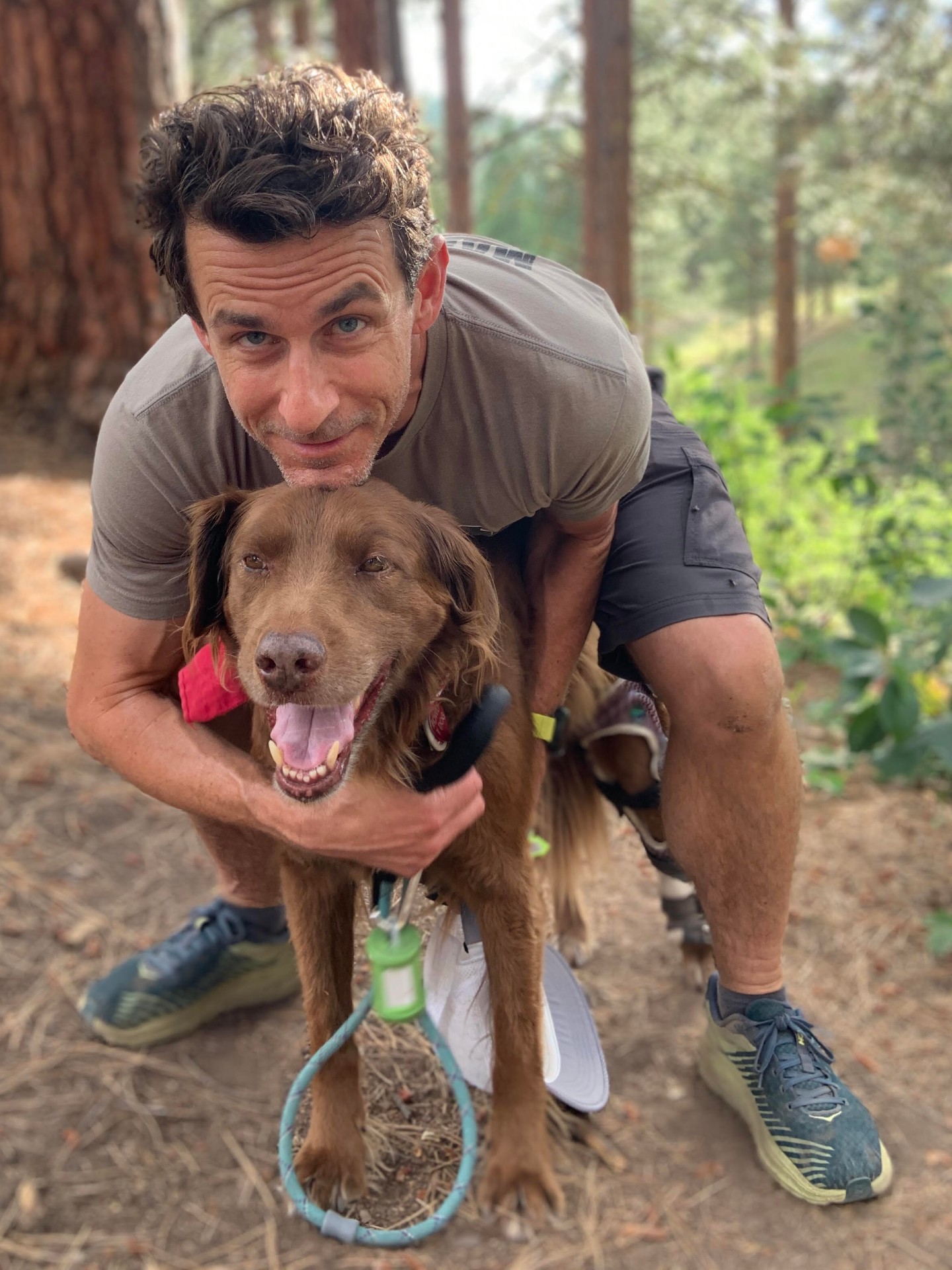7 truths every runner will recognize, from the book 'I Hate Running and You Can Too'
Brendan Leonard says running is an irrational passion and he hates doing it - and yet he just can’t stop


Almost all of us who have ever run have hated it at some point, especially when starting out. Efforts to lace up your best running shoes are all-too-often preceded by a lengthy bout of procrastination, as you know that in 10 minutes’ time your body will hurt, you’ll be hungry, uncomfortable and want to quit.
Author Brendan Leonard started out like this, and despite running multiple marathons and ultramarathons, still hates running.
His new book, I Hate Running And You Can Too, charts his relationship with what he calls his “irrational passion for running irrational distances”.
The book is packed with laugh-out-loud advice, and also includes graphics and charts drawn by Leonard himself. And, despite what you might think from the title, is an inspirational short read that will appeal to runners of all levels.
As a runner myself, the book provided plenty of nuggets of wisdom that I wholeheartedly agreed with - as I'm sure fellow runners will too.
1. Walking is running
Leonard begins by saying new runners should start small and build up, but more importantly don’t be afraid to walk - which will be music to the ears of anyone considering using walking to lose weight.
Leonard quotes running coach Jeff Galloway as saying, “There is no rule book for running that excludes walking.”
Start your week with achievable workout ideas, health tips and wellbeing advice in your inbox.
Even if you feel like you shouldn’t be walking, the fact is that you can - and should - walk whenever you feel like it, especially during races. Most ultramarathon runners walk up hills, and plenty of people run/walk during races, from marathon distance to 5k.
The author helpfully demonstrates via graphs that if you begin a race running all-out then blow up later due to exhaustion, you would finish in a slower time than run-walking the entire race.
2. No one deserves to be at a race more than you
Leonard says the following about anyone who goes out to run, whatever their speed, shape or size: “We’re all runners, and we’re all trying to improve just a little bit on the person we were yesterday, or last month, or last year.”
The only person you have to beat is the negative voices in your head telling you that you’re not a runner, and that instead of running you should stay at home and watch a few more episodes of Succession.
By not making excuses you will ensure you become the person you want to be, even if you still hate running.
3. Running is painful
There’s no point glossing over the fact that running hurts. It hurts your bones, your muscles, your skin, your lungs.
But over time it becomes uncomfortable rather than painful.
I’ve run ultramarathons in the Alps and a marathon dressed as a lobster, and can say from experience that what Leonard says is true: the uncomfortableness plateaus until you don’t notice it.
Occasionally, certain body parts start complaining more loudly than others, then you enter the ‘pain cave’ before eventually returning to the ‘uncomfortableness plateau’.

The book's author Brendan Leonard
4. Keep showing up
Leonard makes an important point that, like having a job, a key part of running is just showing up: “You show up, you do the work, you get rewarded.”
He also argues that accountability is more important that inspiration when it comes to training. Whereas with work, most of us don’t want to let our bosses down, with running you should think of it as not letting yourself down.
Be accountable to yourself, put yourself in the number one slot and complete the training for yourself. Do what you say you are going to do and you will begin to enjoy running.
5. Be the runner having the most fun
Most runners in a race are not in with zero chance of winning it. So, Leonard asks, why do they bother entering? That’s what you need to figure out.
“There’s nothing wrong with trying to run as fast as you can, but there’s also nothing wrong with creating your own definition of success,” says Leonard.
It helps to figure out a reason to keep running, and it can be whatever reason you decide. Success for you could mean running up the nearest hill non-stop, or it could mean running for a total of three hours a week without worrying about distance. Crucially, it does not have to be about how fast you can go or increasing running speed.
Once you realise that, you’ll begin to have more fun.
6. Setback are just a pause on the way to your goals
Whatever you’re training towards, there will inevitably be problems that may threaten to derail your plans. For most runners, this often comes in the form of an injury, leading to frustration, anger and sometimes quitting.
Leonard’s advice is to use setbacks – whether illness, injury or other unexpected bumps in the road – to recalibrate your training and learn something new from it, such as how to avoid that injury happening again by getting a gait analysis.
Setbacks for runners are part of the process says Leonard, and it’s important to realise they don’t mean you’re “not cut out for running”.
“Giving an injury time to heal properly, or being patient in the face of a hiccup that life throws at you that puts your running on hold, is how you develop the resilience to stay in the game for the long term.”
7. Falling in love with running is not like falling in love with a person
The book argues that taking up running is similar to “slogging your way into love” rather than a love-at-first-sight-type experience - yet it does have similarities to loving someone else. “You can go head over heels for it, you can start too fast, you can unintentionally neglect it, you can be on and off for years, and it can be a constant companion in good times and bad.”
Leonard goes on to say that once you’re in the relationship, you can love that person without liking them all of the time, much like running. “For the first 50 minutes of a run, I’m pretty sure I don’t like it at all. Then something flips and I actually enjoy it for a little while.”
The important thing is, you get to write your own running story - and it can take whatever form you like.
I Hate Running And You Can Too by Brendan Leonard is out March 16, priced at $14.95/£12.99 in paperback or $9.99/£8.94 Kindle download
Howard is a freelance health and fitness journalist and copywriter. He has written for publications including ShortList, Runner’s World, Trail Running, Women’s Running, Red Bulletin, Wareable and Cycling Weekly. He enjoys nothing more than lacing up his trail shoes and heading out to explore new trails. He’s run ultramarathons everywhere from the French Alps and Canadian mountains to the Welsh coast and Peak District. When not running, he’s usually found hitting his local MTB singletrack trails or on a quest to find the country’s best cinnamon bun.
